India coronavirus: 'Stay positive' call amid raging pandemic
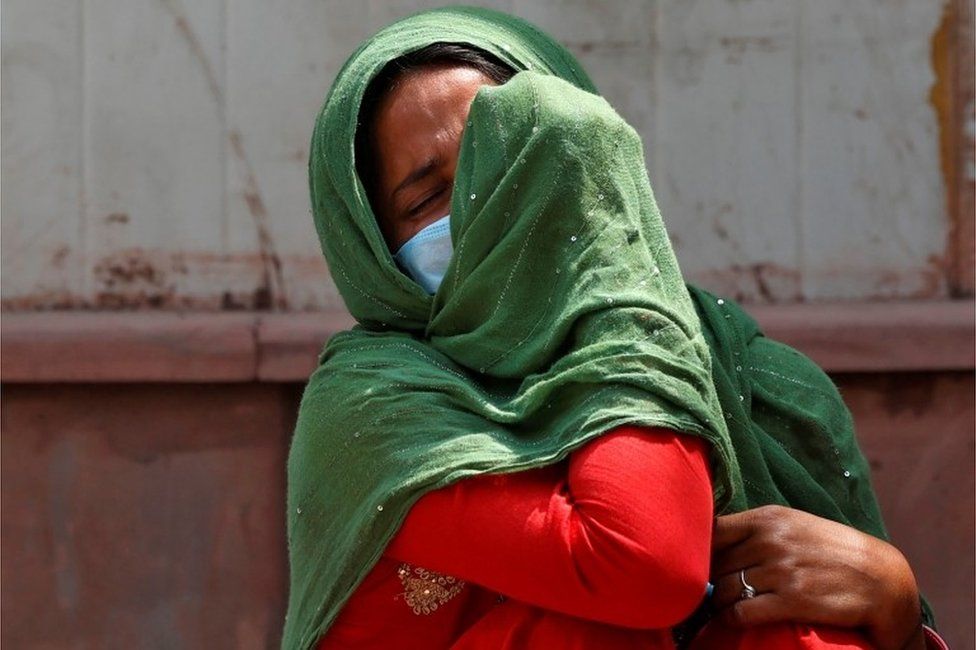
"It's a difficult time. Many people have died. But they are gone. You can't do anything about it."
Mohan Bhagwat - who heads the Rashtriya Swayamsevak Sangh (RSS), the Hindu nationalist organisation seen as the parent body of India's ruling party - was speaking at the weekend during a televised series of lectures called Positivity Unlimited.
His apparent aim was to shore up the morale of Indians reeling under a horrifying second wave of coronavirus, which has killed hundreds of thousands of people.
Driven by highly infectious variants, the surge has been exacerbated by official negligence and a failure to prepare for the current crisis, numerous experts and critics of Prime Minister Narendra Modi's BJP government say.
Mr Bhagwat continued: "People who have left us have been, in a way, liberated because they don't have to face this situation any more. We [the survivors] have to face it now, secure each other.
"It's a difficult, sorrowful time. We cannot become negative. We have to stay positive and keep our bodies corona negative."
Forget the mixed metaphors for a moment, and consider the apocalyptic reality that Indians are grappling with.
More than 250,000 people have died of Covid-19 in India so far, according to official figures.
Some 40% of these deaths have occurred during the current second wave. More than 220,000 people were infected and 1,500 people died of the disease on average, every day in April. (The actual count was possibly several times more.) More than 100,000 people are expected to die in May, modellers estimate.
People have choked to death in their homes, in hospitals and outside crowded emergency rooms because of lack of oxygen. Forced to scavenge for beds and buy oxygen, medical devices and medicines on the black-market, families have been traumatised and financially ruined.
As the virus has ripped through the countryside, hundreds of corpses have been found in rivers, most probably because families couldn't afford cremations.
Indians have carried corpses of their loved ones on their shoulders, and in rickshaws and bikes to overflowing cremation grounds. Bodies have piled up at mortuaries. Citizens, angry and numbed by their losses, both human and financial, have spoken about being abandoned by the state.
Doctors believe many lives could have been saved if the patients had had access to oxygen and medication in time. And now a crippling vaccine shortage threatens to upend efforts to inoculate 250 million people by the end of July.
Mr Bhagwat believes a dose of positivity will help improve the situation. He admitted that the terrifying second wave was because the government, officials and people "dropped their guard despite indications from doctors".
Even as the pandemic raged outside, government officials participated in a workshop aimed at "creating a positive image of the government".
Negative thoughts may be unhelpful, but do forced positive feelings during a summer of sorrow help? "Happiness cannot be pursued; it must ensue," wrote Holocaust survivor and psychiatrist Viktor Frankl in his book Man's Search for Meaning.
Frankl also wrote famously about "tragic optimism", finding meaning in life and maintaining hope, despite loss, pain and suffering. It's something deeply personal.
But at the root of this positivity overdrive, say analysts, is the Modi government's single-minded obsession with controlling the narrative to quell criticism.
"Positivity itself is a dangerous word in these times. Being positive [to the virus] is a thing you dread most," Dilip Cherian, a leading communications consultant, says wryly.
The problem with Mr Modi's government, says Mr Cherian, is that "communication and image management has been its weapon of first choice" to tide over crises.
"In this case, the weapon of first choice should have been science and nothing else. Communicating with science would have saved lives," he told me.
After the first wave plateaued early this year - partly due to a generous dose of good luck and a less infectious strain - Mr Modi's government became euphoric.
In January a government-sponsored narrative that a self-reliant India had managed to beat the virus and would now supply vaccines all over the world took hold. On 28 January, Mr Modi said India had "saved the world from disaster" by bringing Covid under control.
Two months later, things had spiralled out of control: the virus was ravaging the country, the public health system teetered on the verge of collapse, and the vaccination drive was in tatters.
"Now, with people suffering from losses of their near and dear ones and shortages of beds and medicines, such calls for positivity might generate more anger against the government. Many would think they are simply out of touch," says Asim Ali, a research associate at the Centre for Policy Research, a Delhi-based think tank.
Critics say the government's messaging has gone awry because it refuses to acknowledge its own failures and blames the opposition for spreading negativity. A senior minister asked reporters last week whether the people in the government should "hang themselves" because of the shortage of vaccines.
Last week the BJP defended its record and tweeted some "facts", saying that critics were using the "pandemic for their vested political interests". Responding to allegations about leadership, the party said: "Sigh, if only people had better IQ".
"The tone is completely out of touch, arrogant and hectoring. I wonder who's managing the communications for the party," says Mr Ali.
Analysts say they find parallels with how former prime-minister Indira Gandhi reacted after she suspended civil liberties and imposed a nationwide 21-month-long Emergency in 1975. Christophe Jaffrelot, professor of Indian politics and sociology at London's King's India Institute, says Mrs Gandhi countered the opposition during the Emergency by "repeating that its leaders were demoralising the country; and she insisted that she alone had a positive agenda".
Pratinav Anil, a scholar at Oxford University, who co-wrote a new book on the Emergency with Prof Jaffrelot, says it "never occurred to Mrs Gandhi that the people were unhappy".
"Instead the problem was in the optics. So she set about shutting down dissent at home and selling the Emergency abroad. The ministry of external affairs, for its part created a blacklist of 'undesirable Indians'," says Mr Anil.
Supporters of the current government believe the flak Mr Modi is facing is unfair and any government would have struggled to manage such a deadly surge.
"A greater part of the narrative is focused on deriding and demeaning the prime minister with the singular objective of projecting him as insensitive and incompetent," noted Ram Madhav, the BJP's national general secretary.
This, he says, ends up "demeaning India in the eyes of the world", adding that critics were forgetting the government's "sincere endeavours and the real challenges" in battling the second wave.
Mr Modi has always invited Indians to dream. He has said India aims to become a $5 trillion economy by 2025, and double incomes of farmers by 2022. "However people love to dream and they may still believe that good times are coming after this [Covid-19] crisis," says Prof Jaffrelot.
Critics say Mr Modi could make a start by acknowledging his government's failures and begin listening to independent scientists rather than bureaucrats in shaping policy to tackle the pandemic.
Accounting for more than 40% of global coronavirus cases since late April and a third of worldwide deaths from the infection since early May, India is now the hub of the pandemic. The BJP says Mr Modi had warned of a looming second wave in half a dozen meetings with chief ministers of states between September and April.
In that case, critics wonder, why did his government allow thousands of fans to turn up for international cricket games in Ahmedabad in March and millions of pilgrims to congregate for the Kumbh Mela in Uttarakhand in April? Why were month-long state elections, beginning at the end of March, greenlit by federal authorities?
And most importantly, critics ask, why on 17 April, with the second wave already rampant across the country, did an evidently elated Mr Modi appear before an election campaign meeting, unmasked, to canvass votes in West Bengal, and declare: "I have never seen such huge crowds at a rally"?

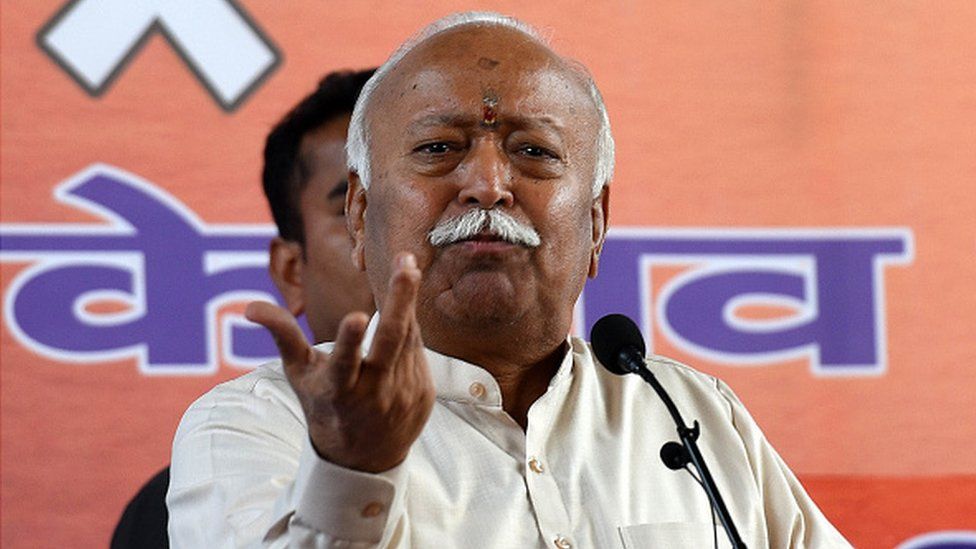
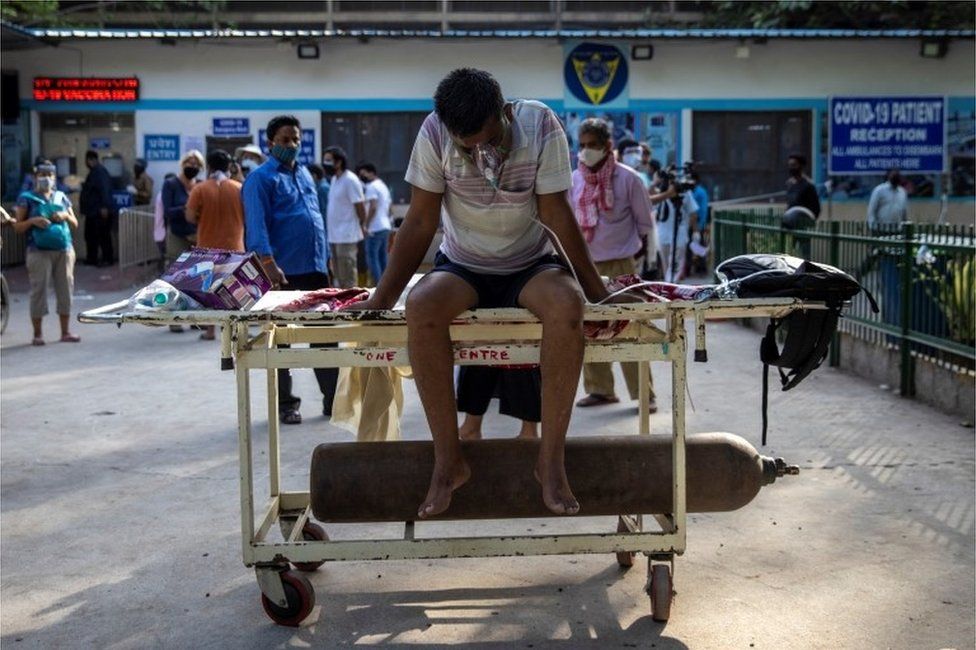
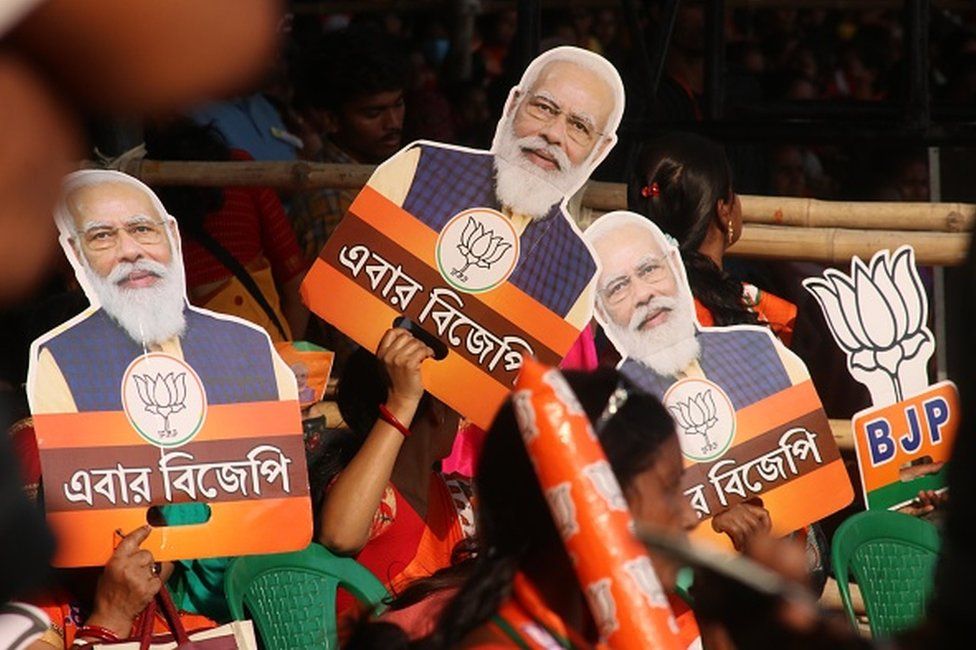
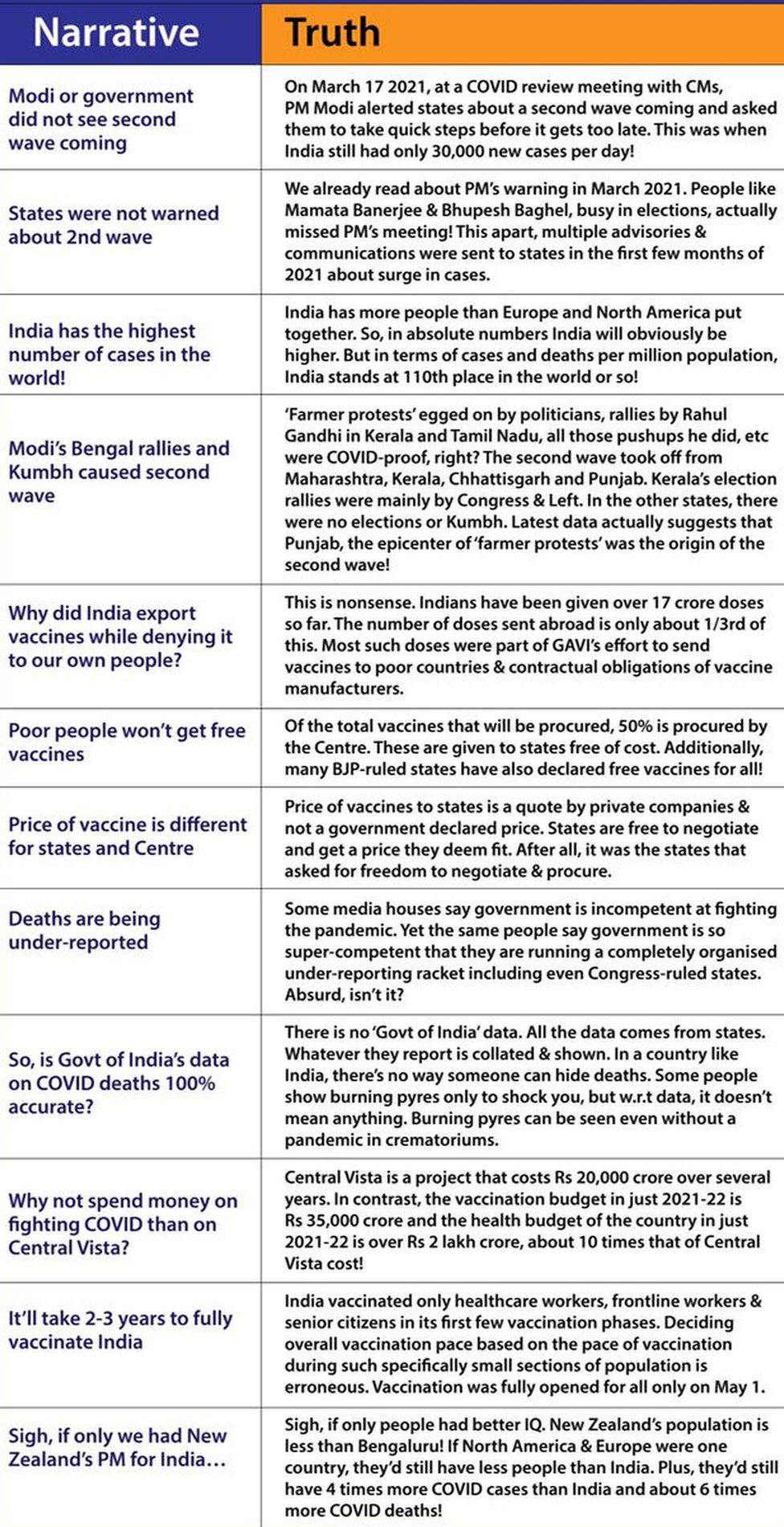

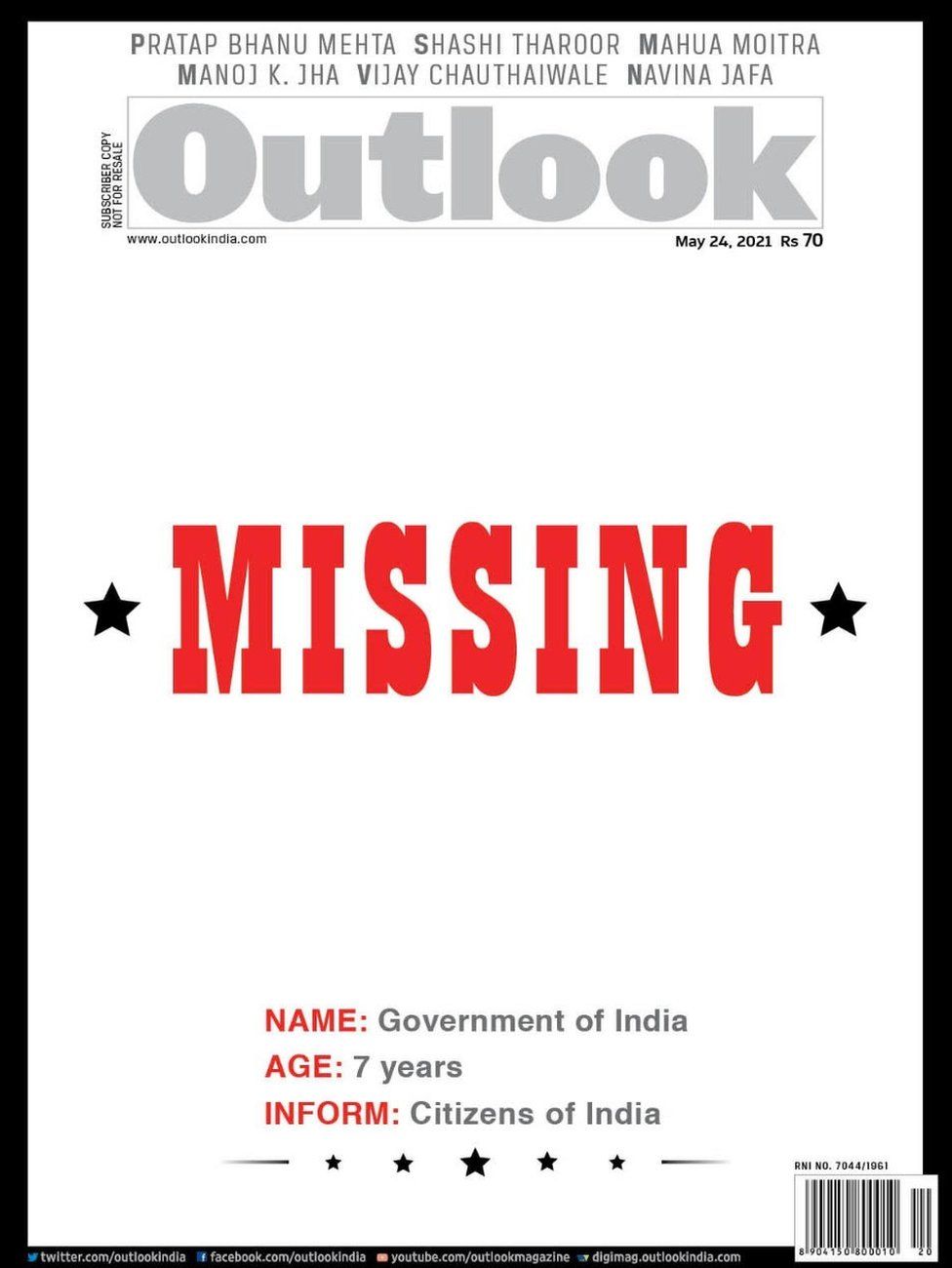


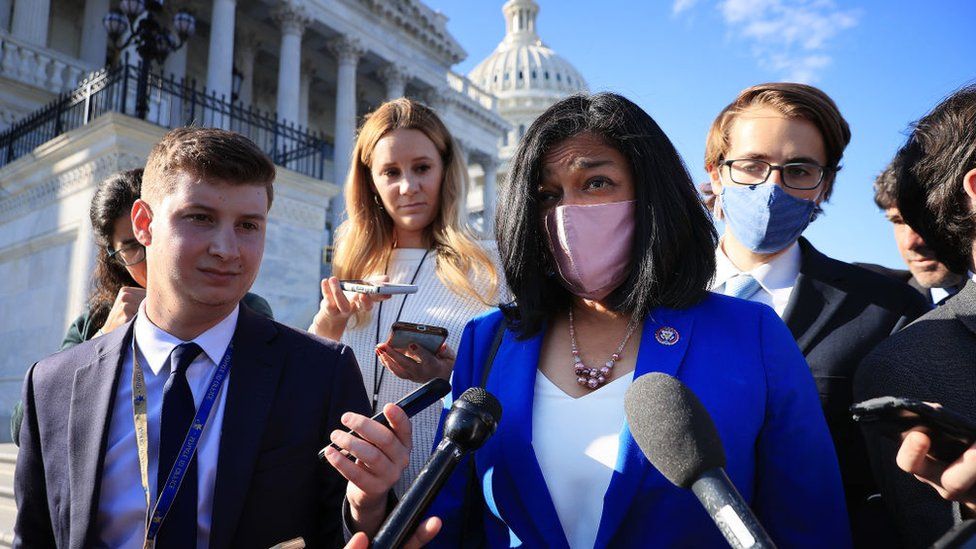






Comments